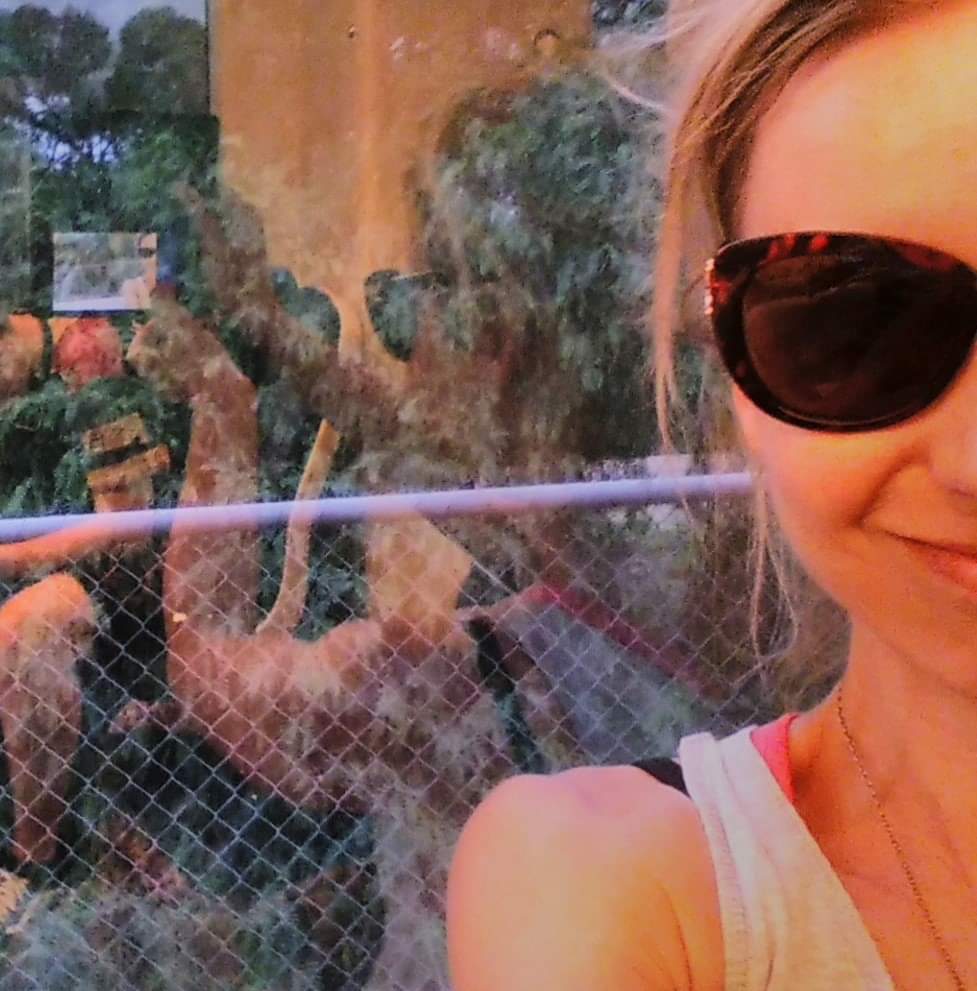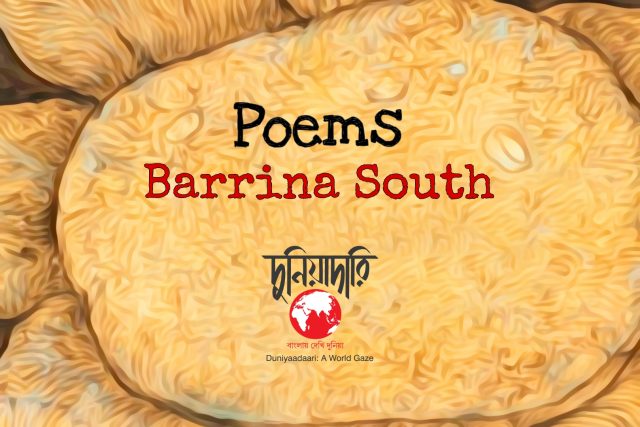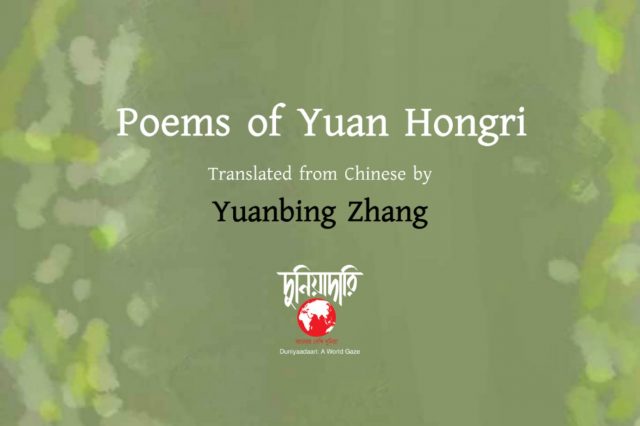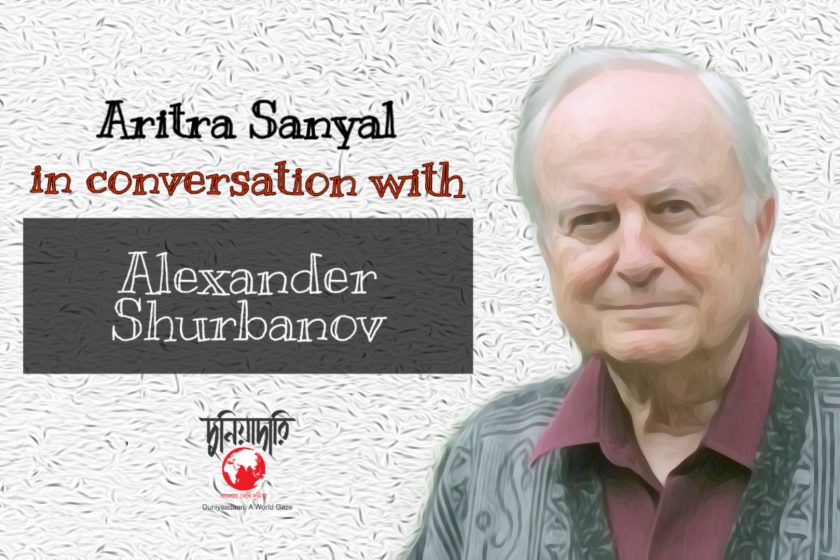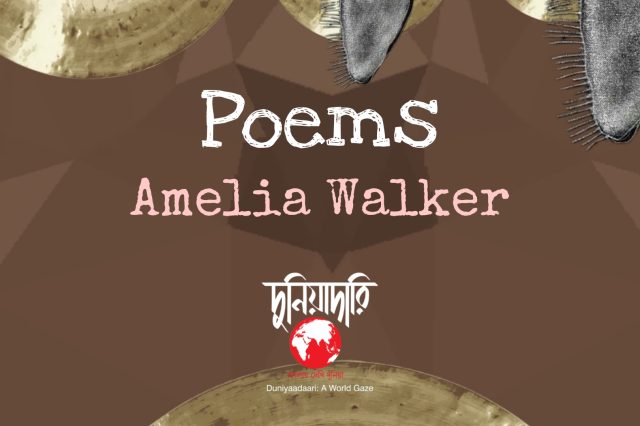
Gone. Now. Still.
Written on Kaurna Yarta, the lands of the Kaurna people, where I was born and live as a non-indigenous person ignorant of so very much.
I was born here, decades gone now,
still I have no way of saying where — no words
for this red glory I call dirt.
But that’s not one, not any
of the names to which it answers.
Soundless, the mouths of my feet seal over
like they were never
there — here
(true:
they never were — whoever heard
of feet with mouths?)
Unable to converse, they can’t connect.
My legs can’t walk, can’t stand — I float
away, a ghost
hovering over this more-than-dirt,
feet drawing blood with each lurch.
I do not know
why the lark hushes,
why the emu peers at me that way.
I cannot hear, let alone sing
their songs, so loud.
Only years of learning have brought me
at last, to question my stupidity.
Decades gone now,
I was born here (where?)
still I have no way.
Honey Without Bees
Inspiration for this poem was drawn from https://sugarhistory.weebly.com/historical-and-trade-significance.html and https://www.etymonline.com/word/sugar
There are things in this world so beautiful they burn
as the sun burns, and love and hate too.
Beatriz de Bobadilla y Ossorio was Countess of La Gomera.
In 1492, Columbus docked and went to her, wanting supplies.
She gave what was asked. Then, she gave more:
an unknown kind of spice made of crystals,
glittering like diamonds.
She lit his tongue with it: sugar.
Then, he wanted more.
His empire wanted
and took.
Over coming years, thousands were uprooted
from their homes, shipped to plantations,
where they learned how sugar rots
and sickens. Even before the first taste,
there is always something bitter in every sweet.
Derived from the Sanskrit sharkara,
the word echoes memories of gravel, grit.
And aren’t diamonds, too, in the end just a dust
for which some kill?
There are things in this world so burning
we call them beautiful.
Now I am become…
Written after learning about bacteria in the ocean that piece microplastics back together, forming large and dangerous plastic pieces: https://www.newsweek.com/ocean-bacteria-making-microplastics-stick-together-form-bigger-more-dangerous-1316423
organic (adj.):
Etymology: from Greek organikos: “of or pertaining to an organ, serving as instruments or engines”, from organon “instrument”’ (from the Online Etymological Dictionary).
Some current usages:
(1) ‘noting or pertaining to a class of chemical compounds that formerly comprised only those existing in or derived from plants or animals, but that now includes all other compounds of carbon’;
(2) ‘characteristic of, pertaining to, or derived from living organisms’;
(3) ‘developing in a manner analogous to the natural growth and evolution characteristic of living organisms; arising as a natural outgrowth’;
(4) ‘characterized by the systematic arrangement of parts; organized; systematic’ (from Dictionary.com)
Plastics are organic, like petrol, coal,
uranium—of the earth—leeched
blood of stone. Plasma. Pulsing. Flow-
ing in-Flux. This is plasticity:
what it means to be
plastic: always shifting, re-shaping, transitory
and trans/forming. Nothing is
created or destroyed, only changed,
physicists say
(I recall Oppenheimer
recalling his bomb
eyes burning
He quoted the Bhavagad Gita: Now
I am become death…)
Mushrooms are organic, their spores
organic, like bacteria, like us. We are
organisms systems
organised and dis-organised
perpetually re-forming.
We are plastic: changing, growing
new skins as we shed old.
We come
from stars, become dust and as dust
keep becoming.
Plastics do this too:
peel,
shred,
spread in scattered fragments, borne
by air and waterways, tiny
as breeze-blown spores that settle
and spring fast into fungal bloom.
In our oceans live bacteria —organic bacteria,
microscopic organisms
perhaps not unlike what we were
when our stars changed and fell.
Like us, these bacteria are builders
and programmers: they take
it on themselves to reorganise, create
sense from chaos,
recognise patterns
in our plastic castings, begin puzzling new structures
from deconstructed parts.
Do they fathom the havoc wreaked?
They are so plastic, like us, so organic.
Coal Lake
Regarding ash dams: large dams filled with dust from coal mining
Most ash dams are hidden behind large fences within power stations, and I would say most people in Australia have never seen one. When you do they're very, very stark." —Paul Winn, environmentalist, quoted in Ben Millington’s ABC News Article, 11 March 2019 https://www.abc.net.au/news/2019-03-10/coal-ash-has-become-one-of-australias-biggest-waste-problems/10886866
Though we won’t look at it, still
it stares at us, a blackened eye,
soulless window into permanent night,
a wound, an ulcer, necrotic,
a storming cloud, set to break
as windows break and mirrors too
when we tumble through
and falling, face
at last that eye, staring sharp
as cracks in a reflection
reminding what remains
when skin is gone, that eye
so frightened, so cruel, that eye
so undeniably our own.
Becoming Bicycle
It’s a small movement. Yet it’s huge. A swing of the leg, shifting my weight. Settling. Feet on pedals. Bars in hand. Arse on seat and helmet strapped tight around my head like a crinkling tortoise or green walnut boldly soft within its shell.
Through this movement, in this moment, I become something other, somehow slip standard time. To get places on a bicycle takes longer, but to me it saves time because I’m pressed deep in every sensation. Wind. Rain. Heat. Cold. Tightness in my chest as my lungs gulp air. Screaming in my legs at uphills that don’t quit.
In cars I too quickly forget my body. Everything becomes radio and autopilot. Red light. Stop. Go. Arrive. Like the journey never happened at all.
On my bike I see things I’d otherwise speed past. I’m aware of people moving around me, aware they are people, not just other cars, not just traffic. The difference is that of avatars versus cyborgs. A car is armor, a tank, a shell. All it protects, all it transports, it swallows, devours, like a cypher erasing its own meaning.
Is that why aggression comes so fast to some drivers?
A bike doesn’t screen the body, rather extends it. To cycle is to become a style of machine, a technology that reminds us how animal we are. Human machines are animal inventions after all. Nests, hives and river dams are inventions too. Trees as machines networked by fungi are more complex than anything we’ve ever designed. Becoming bike is not the same as what trees do, but nor is it fully removed.
To move is to breathe is to remember connections. To bike is to cycle is to remember again, again. And to remember is always again to sense membership, to realise what matters anew. A small movement, yet so huge.
Facebook Comments

